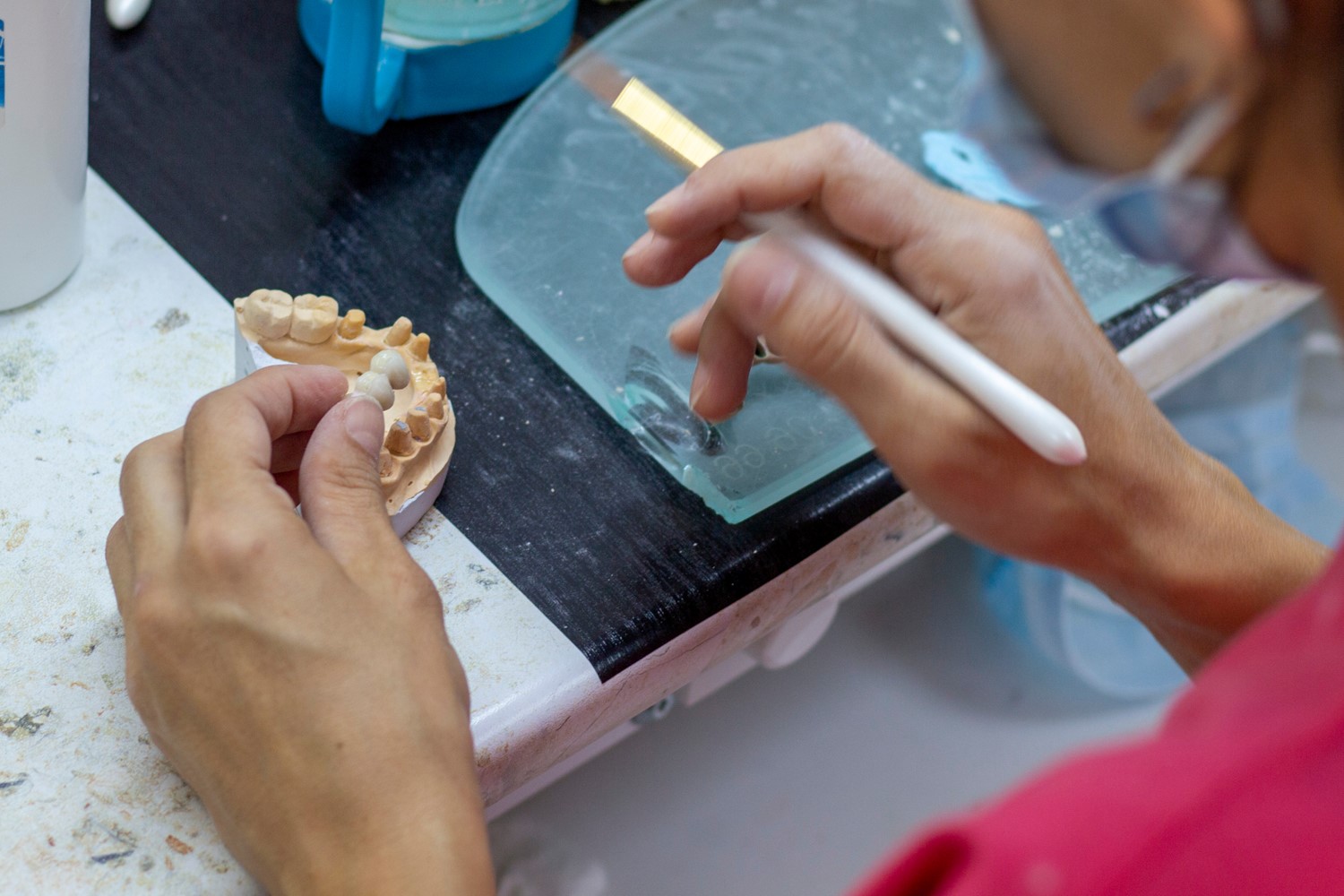What Are Full Dentures
When a person is facing oral issues, one of the first options that come to mind is getting a set of dentures. While it is indeed a somewhat effective fix to most oral problems, it’s not a one-size-fits-all solution. Unfortunately, not many people understand this and often go straight to their dentist for a set of dentures. Little did they know they could solve their problems with simpler solutions.
Similarly, there comes the point when simple solutions such as regular brushing and flossing won’t suffice. If you wish to avoid an irreversible mistake, the best thing you can do is inform yourself of full dentures. Let’s start by answering the question: ‘What are full dentures?’

An overview of full dentures
Dentures are a set of removable prosthetic teeth that act as a replacement for your missing natural teeth. There are generally two types of dentures: partial and full or complete. The former applies to those with missing a tooth or a few teeth. While the latter is best for those who have entirely lost either their upper or lower permanent teeth. (1) (2)
However, these individuals are not the only people who can get full dentures. Patients also can have all their remaining teeth removed to be replaced with a set of full dentures.
Essentially, it gives individuals a full set of teeth with capabilities similar to or even greater than before. For example, with dentures, you can eat hard food – like crackers, nuts, and toasts – that you usually can’t eat, much less chew. Of course, the set of full dentures may vary in quality, durability and toughness according to the material and other factors. Nevertheless, the main idea behind dentures is to give you back the oral capabilities you had when your teeth were at their peak.
The process of getting a set of full dentures
If you wish to get a set of full dentures, there are several steps you must go through. Of course, different service providers will perform the procedure differently. In the case of full dentures Blenheim service providers, they will perform the procedure according to these steps:
- During the first visit, the service provider will determine whether your oral cavity can handle housing a set of full dentures. They do this by checking whether the gums and other soft tissues are healthy enough to withstand the dentures.
- The next visit, and the visits after that, may involve simply taking measurements of your oral cavity. This procedure will ensure the dentures you receive will fit your mouth perfectly to avoid discomfort. They may also inform you of several things about full dentures to know what you’re getting yourself into.
- Once measurements are taken, the service provider will extract your teeth, starting from the back and front. This step may take a few months since they’ll wait for your posterior (back) teeth to heal before proceeding with the anterior (front) teeth.
While doing so, they may provide a temporary set of dentures so you can still eat and perform your daily routine. This set of dentures may not be a perfect fit for your mouth.
- After extracting all your teeth and waiting for them to heal, the service provider will proceed to create the dentures. The main reason they wait until your gums heal is that the shape of your oral cavity may change while healing. That’s why in before and after full dentures pictures, the shapes are always different from one another.
Therefore, they must wait for your mouth to take the final shape if they wish to create the best full dentures that fit your oral cavity perfectly. At this point, you no longer need the temporary set of dentures.
In short, getting a set of dentures could take over a year. Therefore, you must ensure you’re certain of your decision and that it’s something you want to happen.
Different types of full dentures
Under the ‘full dentures’ category, there are three other categories. Here’s a look at each one and what they do:
- Immediate full dentures
As stated earlier, you receive a temporary set of dentures while you wait for your posterior teeth to heal. This is what they call the immediate full dentures. They’re only meant to replace your teeth temporarily while you have yet to receive the actual dentures. Since that’s the case, it doesn’t necessarily need to be a perfect fit.
- Conventional full dentures
The actual dentures that experts speak of are called conventional full dentures. Unlike immediate full dentures, these are designed to fit perfectly on your oral cavity. It may take time to get used to, but these dentures will conform to the shape of your mouth over time. (1)
- Implant-supported overdentures (ISO)
As the name implies, implant-supported overdentures are essentially a set of conventional full dentures but with implants. These implants provide extra support and stability for the full dentures. It’s basically an upgrade of conventional full dentures. This type of denture is still removable, despite the implants.
Wrapping up
As you may have realized, dentures are not exactly something you can get out of the blue. It takes several months or even years to get. Therefore, it’s not advisable to decide on getting dentures spontaneously. It requires a lot of deliberation, but of course, that also requires you to at least understand how it works. Fortunately, this article should be plenty of help in that regard.
References:
- “Dental Health and Dentures”, Source: https://www.webmd.com/oral-health/dental-health-dentures
- “Dentures (false teeth)”, Source: https://www.nhs.uk/conditions/dentures
- “Implant-supported overdentures: part 1”, Source: https://pubmed.ncbi.nlm.nih.gov/34302089/







Everything is very open with a precise clarification of the
challenges. It was really informative. Your site is very helpful.
Thank you for sharing!